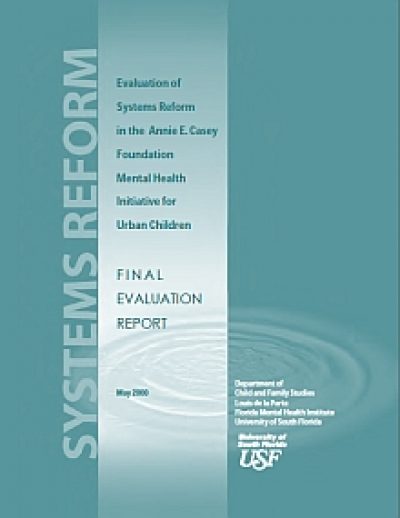Health Histories
Approximately 20% of all children have a diagnosable mental disorder with those in poverty less likely to get help.

This comprehensive evaluation provides findings from the Casey Foundation’s five-year Mental Health Initiative (MHI) for Urban Children, implemented in the early 1990s. The MHI created innovative ways of delivering culturally appropriate, family-focused mental health services to children in high poverty, urban communities, and worked with states to improve the policies and practices supporting these services. Readers get a feel for what worked through background information, major accomplishments, reform challenges, lessons learned and in-depth case studies.
The evaluation found that the Foundation’s focus on neighborhood-led, inner-city system reform for poor children was the right one. Just living day to day in impoverished conditions puts these children at much higher risk for spending time with institutions (e.g., mental health, juvenile justice, child welfare, special education) that are unprepared to help them and their families gain the support they need to succeed.